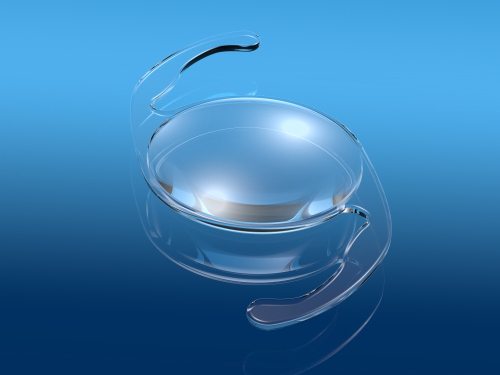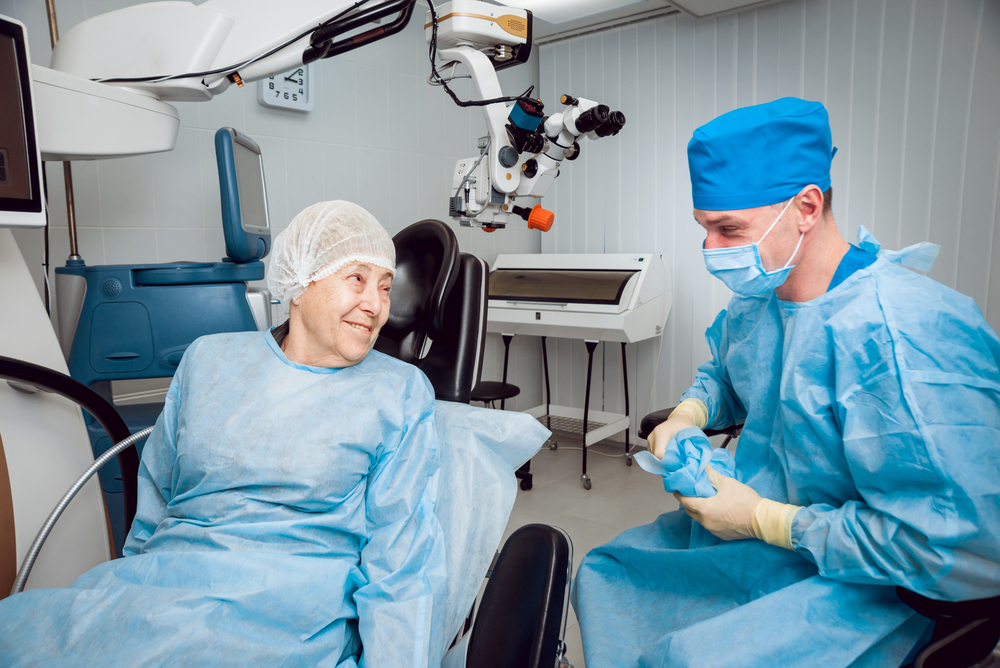I've had wonderful experiences with the staff at VisionFirst Eye Center in Alabaster. Everyone is friendly, courteous, and most even laughed at my crazy sense of humor! 😀 Yesterday was my 1st visit with Dr. Chwalek. She was awesome! She's very knowledgeable and made sure I understood what was going on with my eye. If you need an eye doc, give them a call.
Read Review
Donna G
Professionals all the way. This group of young Men and Ladies explain everything in layman's terms and put you at ease during your visit. But they treat you with dignity and respect and as if you were family. Thank you all at Vision First. Thank you.
Read Review
Carol B
I just had my 2nd cataract surgery. From beginning to end, from Receptionist to Dr, they have been very Professional. You’re told from the time you start your journey whether it be needing glasses/ contacts to eye surgery everything is explained in detail about whatever it may be that you need. The entire staff is very Friendly and Professional with each client. I’ll stay with them from this point on. Blessings to Vision 1st.
Read Review
Denise H
Dr. Chwalek & her staff are always so very kind, gracious and professional!! Each time I have an appointment, I'm always met with smiling faces and a warm friendly reception! It starts at the front desk and continues throughout the office! 5 out of 5 stars every time!! ☆☆☆☆☆
Read Review
Wayne W
Dr. Chawlek is amazing. She spent a lot of time with me and addressed issues that other previous doctors had dismissed. She did tests, came up with a solution to the problem, and scheduled a follow up. Just went there for my yearly exam, and she ended up putting me on a path to fix the issues I had been having for years! 10/10 recommend.
Read Review
Misti W
Very professional personnel. Every option and procedure was explained to me. Very thorough. Great experience. Highly recommend VisionFirst.
Read Review
Mary L
I have just had cataract surgeries arranged through VisionFirst and I am more than thrilled with the results! Both eye surgeries went perfectly and it’s only two days after my second surgery. My vision is already spectacular! I could not be happier with both the optometrist, Dr. Melanie Chwalek, at VisionFirst, and the eye surgeon, Dr. Bret Fisher. I very highly recommend both of them.
Read Review
Carole C
I went in with some eye problems they were able to see me the same day.Dr Chwalek was very thorough and explained everything to me.
Read Review
Tina L
The technician was very knowledgeable and the doctor was very thorough!
Read Review
Deborah B
Excellent experience - my Technician spent a lot of time with me, went above and beyond; my ophthalmologist was thorough, friendly and professional. Registration easy and user friendly. Highly recommend!
Read Review
Nanci W
I had cataracts surgery on both eyes by Dr. Bret Fisher. He did an excellent job restoring my vision. I am so thankful and grateful for him and his staff. Also need to thank Melanie chwalek for post eye exams. All my questions was answered. Kim the tech was always there with a smile and checking up on me. Best professional eye care Thank you.
Read Review
Dorothy T
I was overly impressed, from registration to completion. The Tech Kim, was so very nice & helpful. Dr. Bret was, so pleasant & very informative about my condition. He was very patient in making sure, I understood the upcoming procedure. I will highly recommend your Services.
Read Review
Florence J
I highly recommend Dr Rebecca Doss at Vision First Eye Center. She worked diligently with me in helping me understand the problems that I was having with my eyes. I was back at the office yesterday and was proud to get good results. My experience was great!
Read Review
Eddie C
The staff was very friendly, kind and compassionate. They work well together giving the patient the best care. I highly recommend VisionFirst Eye Center!!
Read Review
Emily B
Best experience I've ever had getting an eye exam, and I'm so excited to be getting my new glasses soon. Everyone was so helpful, and made it a wonderful experience for me. I will recommend them to everyone I know! Thank you to everyone at Vision First Eye Center!
Read Review
Kim S
Dr. Bearman is the most caring and understanding Dr. I've ever met . The whole staff treat you as if your their only patient in their office. And that's a rare thing these days.
Read Review
Betty B
Staff were friendly and efficient. Dr. Fisher did an outstanding job and took great care with my eyes. He came highly recommended. Very happy with the results. Wish I had taken the leap to have LASIK years ago and saved myself all the $ and inconvenience.
Read Review
Anon A
It is always a great experience. The staff is always considerate, professional, and most of they put your needs first.
My wife and I have had Dr. Doss as our Optometrist for over 20 years. She is the best. Her happy smile is contagious. She is always considerate, professional, and just an all around great caring person.
If I could rate your staff and company it would be well above a 10.
Thank you for being our optical staff and Dr Doss.
Read Review
Kurt Y
My first visit to Vision First, Pell City clinic, was very positive. Everyone who had a part in my appointment was very courteous & professional. Dr. Cleghern was so thorough & knowledgeable & answered all my questions & concerns.
Read Review
Maxine B
Dr Bearman… the best. The staff and professionals of VisionFirst, the best. Will be sending all my family here from now on. Highly recommend!
Read Review
Suzan B
Great experience from beginning to end of visit. The registration process was easy, the technician was friendly and polite, the doctor was thorough and answered my questions with ease and the technician who helped me choose my frames was very helpful. Everyone was friendly and polite while also being professional. Highly recommended to anyone needing eye care.
Read Review
Alicia S
Dr. Hamby is awesome! He took so much time with me and made me feel like he truly cared about my eyes! I will take my family to him from now on!
Read Review
Kim T
Dr. Cleghern and her team give great quality care and do it all very efficiently with minimal wait times.
Read Review
Elizabeth T
My husband and I recently had our eye exam with Dr. Hamby at Vision First. I can say for certain it was the best eye exam I've had. My husband has serious eye issues and Dr Hamby took time with him. We will definitely refer our friends and family.
Read Review
Thyra H
Dr. McClintock is amazing the staff is super friendly. I have been here a couple times and they remember me and treat me great when I’m there!! Worth the little drive away from home and I found them through insurance as I’m newer to the area so it was just good luck.
Read Review
Samantha G
I love VisionFirst Eye Care in Trussville. Dr. McClintock takes great care with me. I have been both for glasses and for an eye infection. In all cases, he took time to listen, asked me if I had any questions and found a solution to my issue. Everyone who works there is helpful and friendly. I recommend them!
Read Review
Samantha G
I had a 7:45 am appointment. I was taken back for my eye exam in a timely manner. The doctor saw me shortly after the exam and discussed the results of the exam. Very professional visit!
Read Review
Jeremy L
My kids love Dr. Hamby and the whole staff. He listens to us and lets me know everything that is going on. The staff is also very sweet and knowledgeable.
Read Review
Lynda S
I felt in good care with Dr McClintock and his team. I did not feel rushed. Eyes are very important and they take their jobs seriously, I appreciate that!
Thank you all!
Read Review
Yvette Hornsby
Dr. Mc Clintock and staff at Vision 1st in Trussville are awesome! Very accommodating and professional. I've been a patient there for years! They are very consistent and extremely pleasant. They take care of my vision and help keep it healthy.
Read Review
Catherine P
Dr. Bearman recently did my cataract removal procedure. Everything went smoothly. Every follow-up has been done very efficient and professionally. He has a great staff. He is a great Doctor with a wonderful bedside manner. I would recommend him highly.
Read Review
Linda P
Dr. McClintock & the rest of the staff have always been very accommodating. It’s not always easy to find the correct contacts when your prescription changes but they worked with me in getting them right & making me happy! Highly recommend!
Read Review
Tracy D
Great experience, from check in to testing to my first impression of the doctors every one was kind and helpful and made me feel reassured. They answered all of my questions , I left feeling very confident and informed.
Read Review
Pamela B
Excellent customer service from the moment I walked in the door. Office staff was amazing. The eye glass center representative was awesome even helped pick a pair of glasses outside of my comfort zone. But I love them. Highly recommend Vision First and Dr. Hamby.
Read Review
Jeff W
















